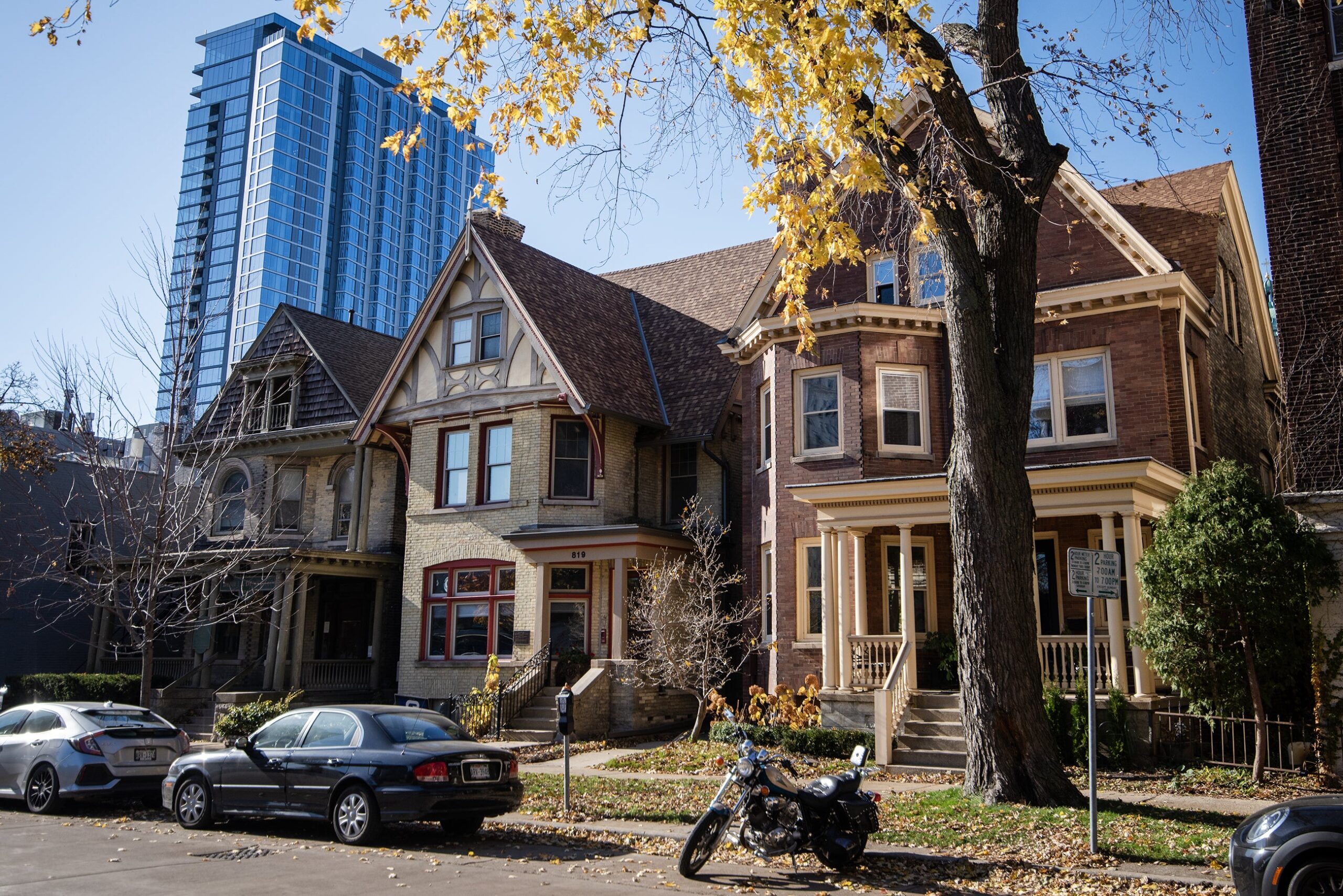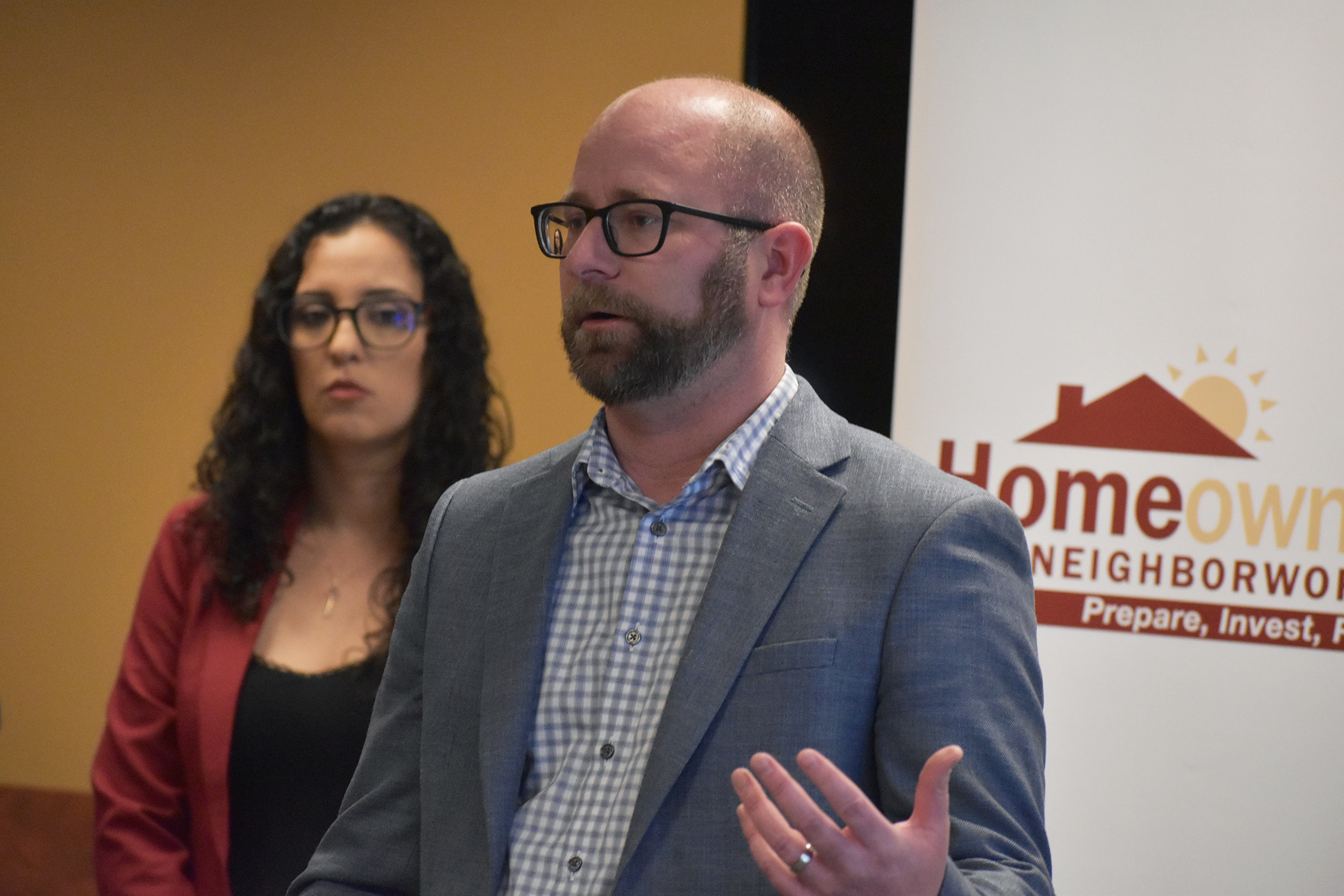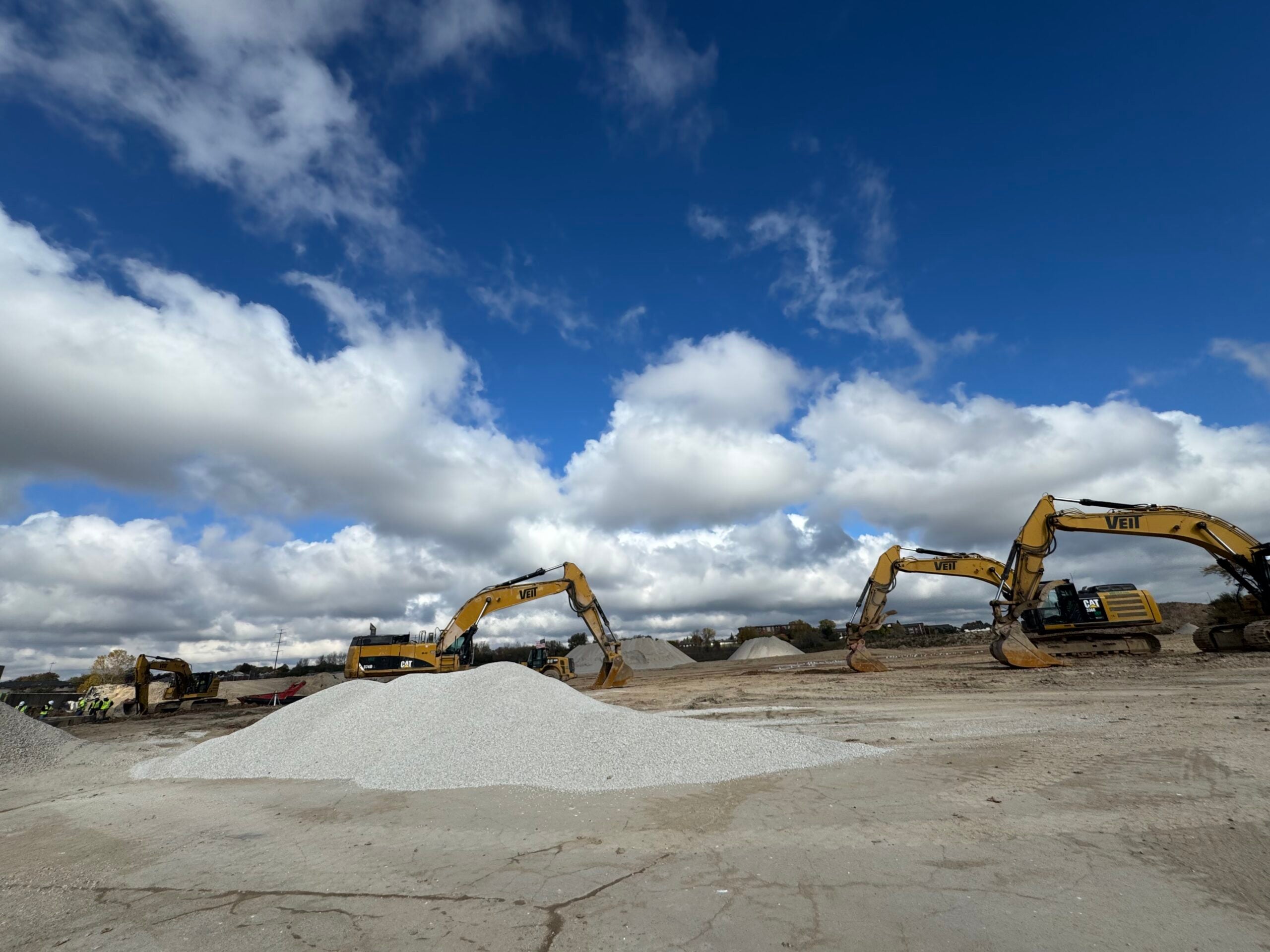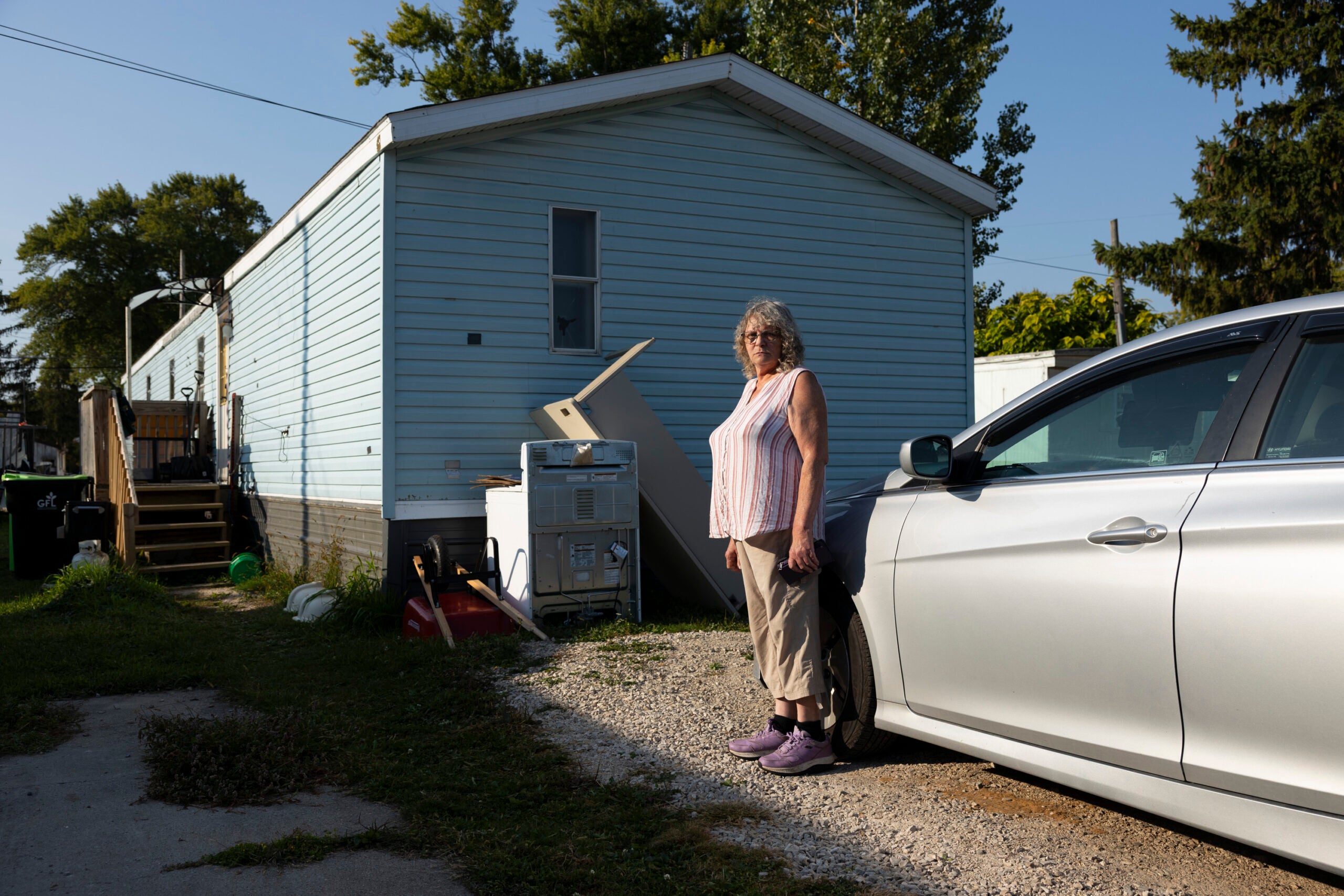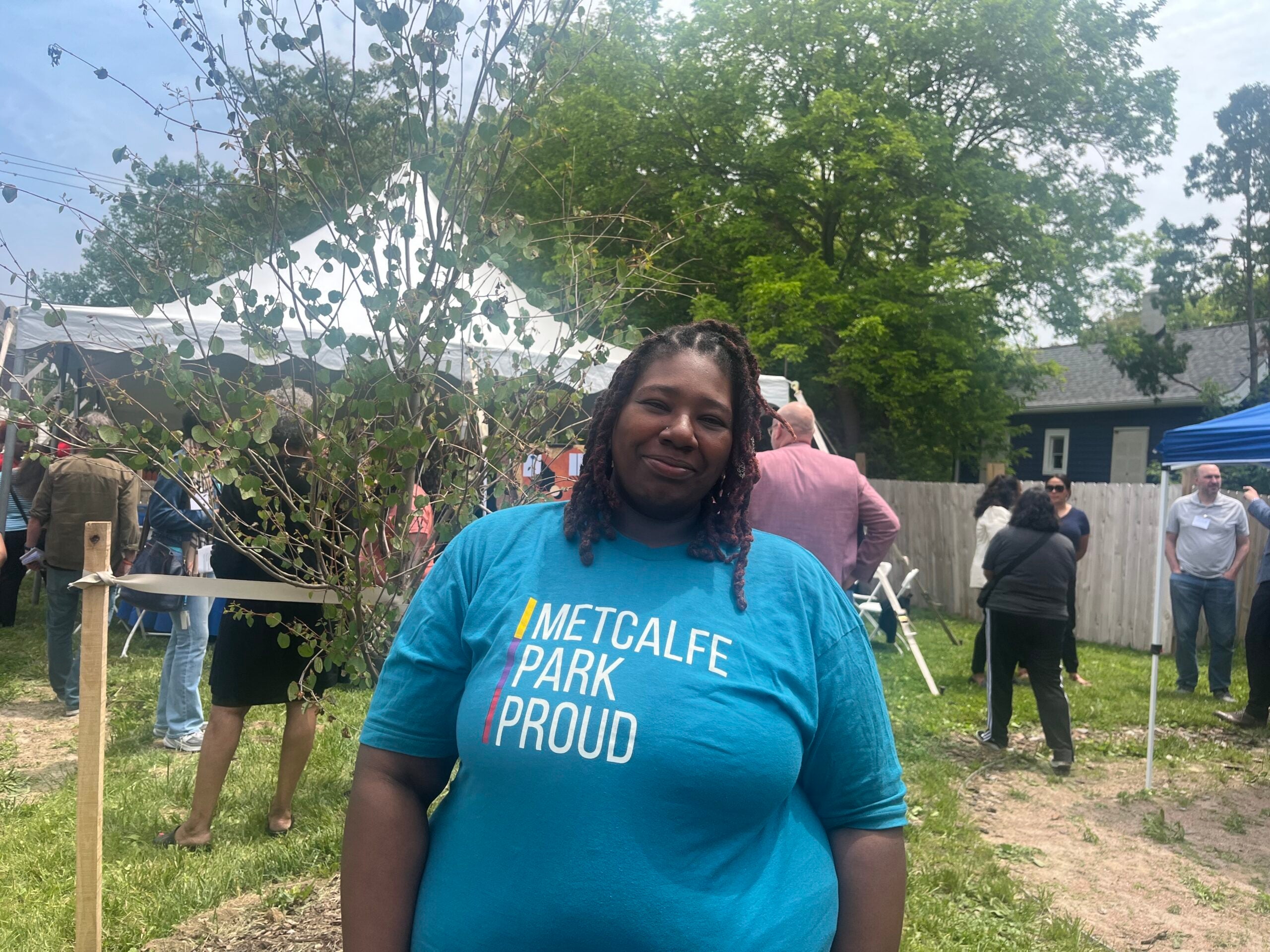Some Milwaukee residents and community leaders are raising concerns about a proposed plan to update the city’s zoning code.
The plan, titled Growing MKE, seeks to change the zoning code to allow for more properties like townhomes and three and fourplexes. It would also remove mandatory parking requirements for developments and update design standards for properties. Supporters of the plan, who include Milwaukee Mayor Cavalier Johnson, say the goal is to increase the number of dense housing options in the city with a focus on affordability.
However, some community members say the city hasn’t done enough to gather input from residents about the proposed changes.
News with a little more humanity
WPR’s “Wisconsin Today” newsletter keeps you connected to the state you love without feeling overwhelmed. No paywall. No agenda. No corporate filter.
“They didn’t engage the population who really speak to the challenges we have in a very low income, impoverished income community and how the changes could affect us,” said Danell Cross, the executive director of Metcalfe Park Community Bridges.
Cross and other residents spoke out about the plan during a lengthy City Plan Commission meeting Monday — the first committee that’s reviewing the plan after a draft of it was released in April. Some community members said they’re worried the changes could negatively impact residents of the north side, which is predominately Black.
State Rep. Supreme Moore Omokunde, D-Milwaukee, said there are often unintended consequences of large scale plans like the Growing MKE plan.
“What the people are concerned about are as we grow the city, you’re growing it and you’re displacing traditional residents and traditional institutions that have been there,” Moore Omokunde said during the public hearing Monday.
Cross said removing mandatory parking requirements would also negatively impact residents of the Metcalfe Park neighborhood, where she said 76 percent of people are renters.
“One of the concerns in our community is that if we had additional people coming into the community, where are they going to park,” Cross said.
She said the community is “overly ticketed” already, and if people are forced to park on the street, she’s worried that could only get worse.
“Multiple tickets can really be a hardship on people,” she said.
The plan, which has several supporters, is part of a larger push from the mayor to increase the city’s population to 1 million residents, as well as the city’s goal to increase affordable housing options.
“The Growing MKE plan will reduce barriers to the development of new homes and encourage the creation of a range of housing choices in every neighborhood in the city,” Johnson said in a statement.
The plan comes as rents are rising across the city. An April Realtor.com report found the median asking rent in Milwaukee is $1,671, a 3.8 percent increase since last year and a 31.1 percent increase from its pre-pandemic level in 2019.
The plan was prepared by the Milwaukee Department of City Development.
“We want to ensure that there are more opportunities for Milwaukeeans to find places to live affordably,” said Lafayette Crump, the commissioner of the department.
Currently, the city’s zoning code restricts some housing types, which can limit the availability of affordable housing options, according to a draft of the plan. But the goal is to modify the zoning code to allow for more housing options without a lengthy review process, which could lead to more of those projects being approved and built.
But Lamont Davis, executive director of the Milwaukee Community Land Trust, said there could be other consequences if the plan is passed.
“Whenever there is a plan that’s going to predominantly affect one particular population, Black and brown folks specifically, there’s always a chance that they could be gentrified or displaced,” Davis said.
Crump pushed back on some of those concerns.
“This is a plan that seeks to ensure that displacement is not occurring,” Crump said. “This is a plan that would allow for additional housing to be present both on land currently owned by property owners in the city of Milwaukee … but also create opportunities for additional families to live within our city.”
The City Plan Commission delayed a vote on the plan Monday. Crump said they’ll continue to collect public input in the coming days.
Wisconsin Public Radio, © Copyright 2025, Board of Regents of the University of Wisconsin System and Wisconsin Educational Communications Board.

